
Pinion Advisory agribusiness consultant Rebekah Starick, Freeling, with AGT Foods procurement manager Leigh Wright, Bowmans, and senior trader Mitchell Elks, Toowoomba. Photo: Liz Wells. SCROLL DOWN FOR MORE PICTURES BELOW ARTICLE
DELEGATES from across Australia and a handful of international visitors are gathered in Melbourne this week for the Australian Grains Industry Conference (AGIC) 2022 to hear about trends and outlooks related to the sector beyond the farm gate.
As the first event to be held in person since 2019 following the outbreak of COVID, AGIC 2022 has close to 500 visitors attending the event hosted by peak industry associations Grain Trade Australia (GTA), the Australian Oilseeds Federation, and Pulse Australia.
Being held at the Crown Promenade in South Melbourne, AGIC 2022 features a two-day program where the supply chain and logistics are hot topics of discussion in onshore events, and Ukraine’s ability to produce and export while under attack from Russia is the major international factor.
Opening the event via an online presentation, Federal Minister for Agriculture, Fisheries and Forestry Murray Watt said the government was working to help the industry capitalise on high commodity prices and productivity.
He said government was also aware of the significant ongoing challenges faced by the industry.
“Australia’s grains industry is currently benefitting from really high prices, high productivity and a whole range of really positive factors,” Mr Watt said.
“We know that the work that you do is so important to our exports, our employment and the contribution to so many rural economies right across our country.
“Whilst conditions are good overall…there are some significant challenges the industry is dealing with at the moment.
“Natural disasters, particularly floods, have had a real impact on grain production in certain parts of the country…and high import costs I know are really impacting on producers and other members of the supply chain.
“There are also some really big challenges facing [the] industry that are coming at us from overseas, whether that be climate change, the pandemic and its lingering effects, or of course the Russian and Ukraine war.”
Mr Watt said maintaining “open, predictable agricultural trade systems” as well as boosting Australian infrastructure and manufacturing capabilities was key to reducing the impacts of these challenges.
He said the government was also looking at ways to support the manufacturing of plant and alternative proteins, which has great potential for the grains industry.
“While there are challenges, there are some really great opportunities for [the] industry as well, particularly when it comes to alternative proteins.
“We think there is real potential to continue to expand this part of the industry, especially through more value-adding which is a high priority for our government.”
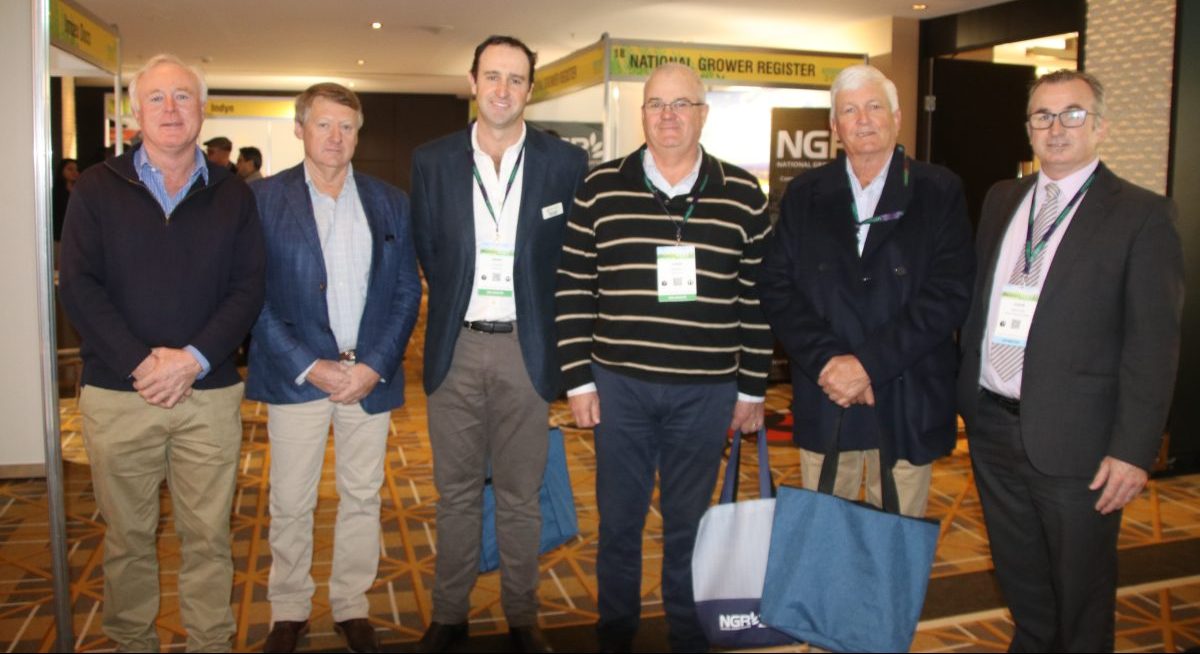
Northern NSW growers Andrew Earle, Mungindi and Matthew Madden, Moree, with WAFarmers members Mark Fowler and John Hassell, with Gary McGill and Grain Producers Australia chief executive Colin Bettles. Photo: Emma Alsop
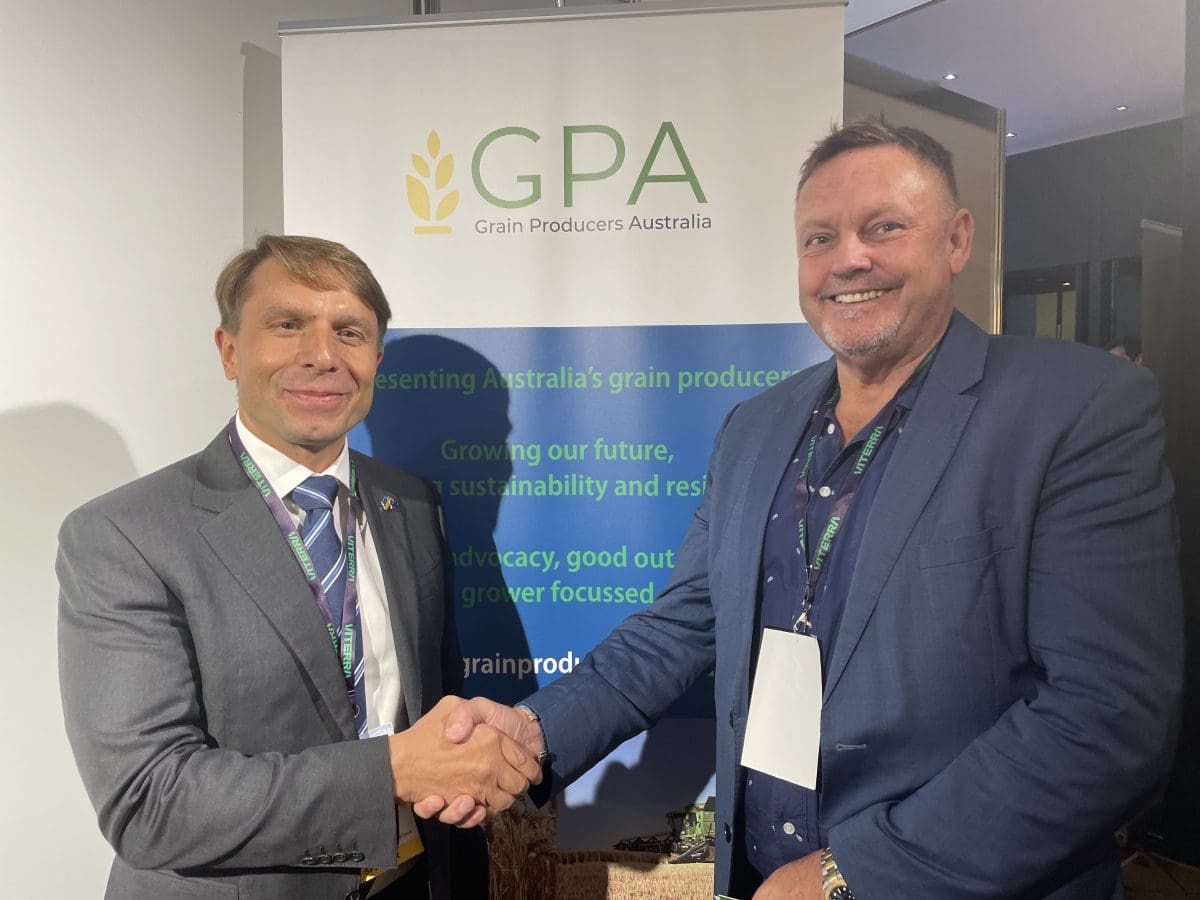
Ukraine Grain Association president Mykola Gorbachov and Grain Producers Australia chair and WA grower Barry Large. Photo: GPA

Moree growers Graeme Gall and Felicity and Geoff Manchee with BBM’s Emma Anson. Photo: Emma Alsop

Pioneer Seeds Swan Hill-based area manager Henk Vrolijks and Toowoomba-based stewardship manager Brent Scott. Photo: Liz Wells
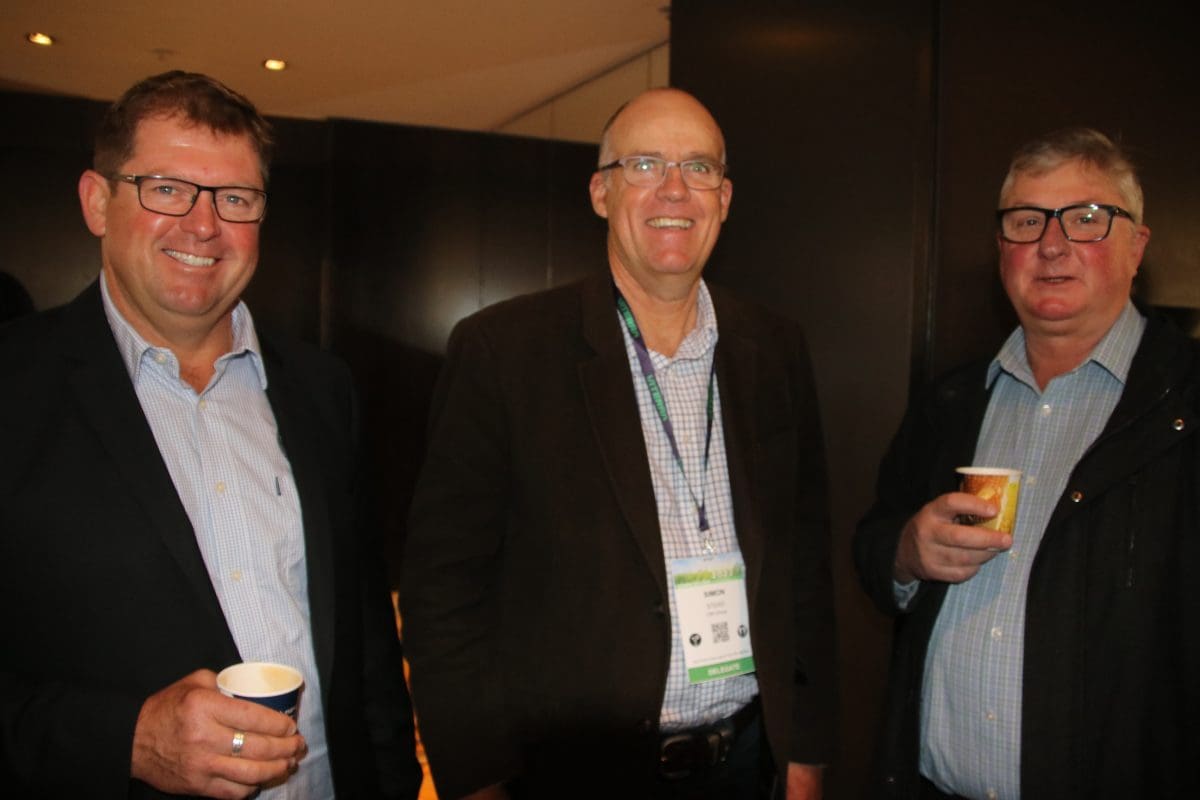
Royce Taylor, Simon Stead and Vince Moroney from CBH Group. Photo: Emma Alsop

AgriDigital’s Winston Bradley, Emma Weston and Henry Walsh. Photo: Liz Wells
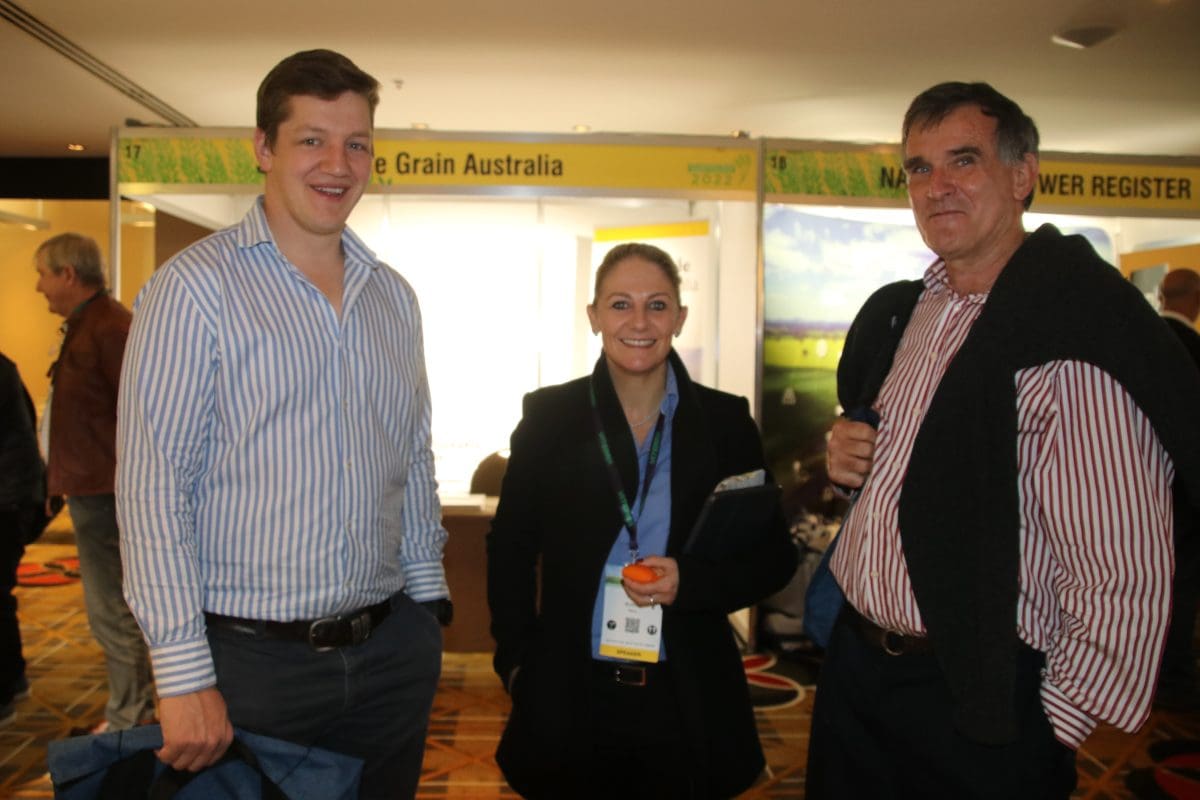
George Weston Foods delegates Henry Davis, Erin Burns and Mark O’Brien. Photo: Emma Alsop
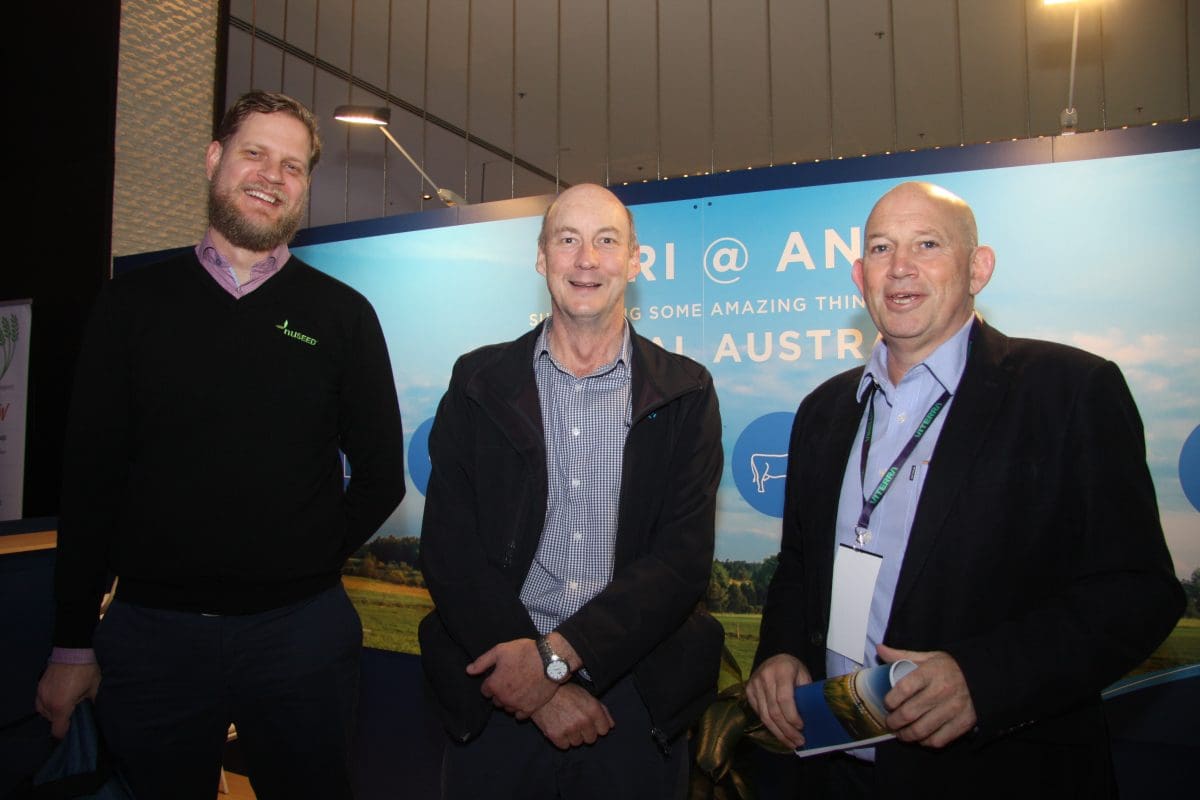
Nuseed Australia marketing manager Rene Borggreve, ANZ agribusiness manager Richard Myers, and ANZ head of agribusiness insights Michael Whitehead. Photo: Liz Wells

Ridley national merchandising manager – grains and oilseeds Reagan Stroud and Peter’s Commodities trader Peter Gerhardy. Photo: Liz Wells

Digital Agriculture Services delegate David Roberts with NGR’s Debbie Newmarch and Jay Holland. Photo: Emma Alsop
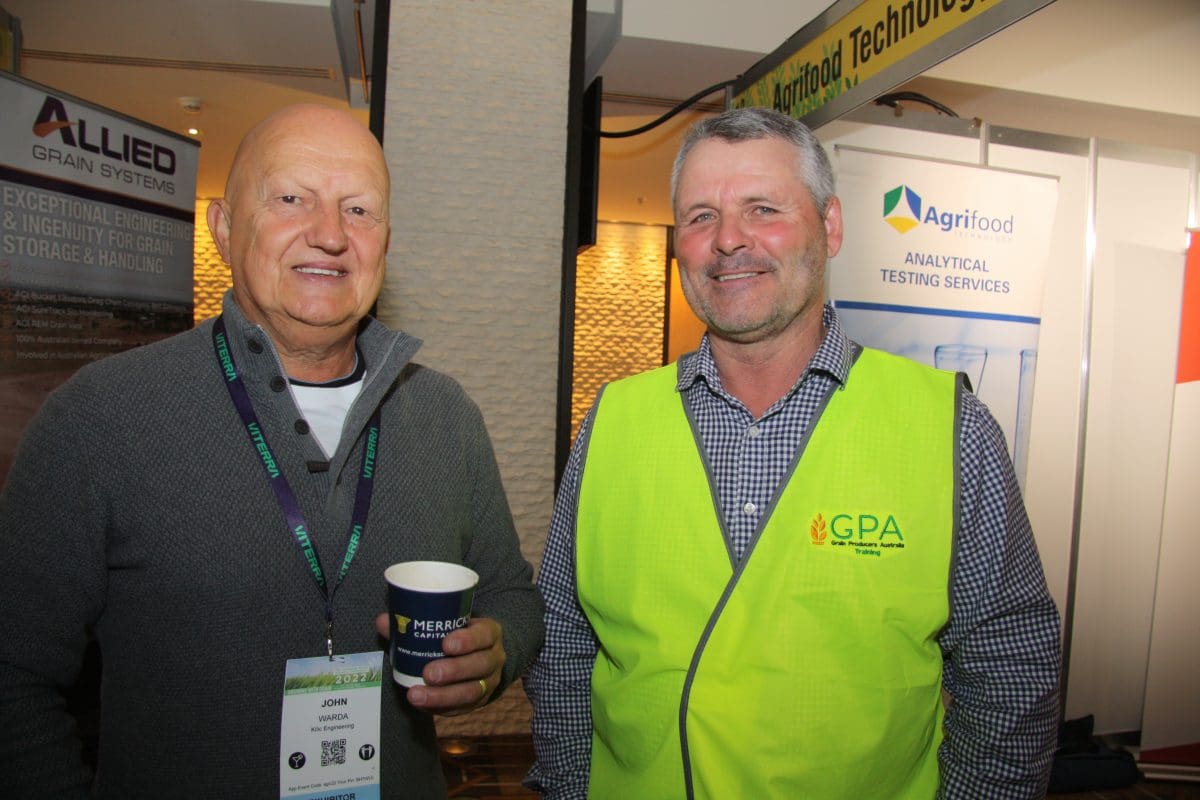
Kilic Engineering business development consultant John Warda, Adelaide, and Balaklava farmer and Grain Producers Australia safety sub-committee member Paul Daniel.

Bridge Commodities director Bill Dwyer, Brisbane, CBA commodities directors Sam Chambers and Tom Morgan, Sydney, and Clear Grain Exchange managing director Nathan Cattle. Photo: Liz Wells
Grain Central: Get our free news straight to your inbox – Click here

HAVE YOUR SAY